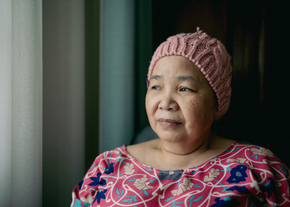
Suicide Prevention, Emotional and Mental Health Support

Suicide Prevention, Emotional and Mental Health Support
Like many illnesses, prevention and early intervention can reduce the impact of mental health conditions. Symptoms of mental illness can often be painful and bewildering. But there is hope. And there is help.
Know the Facts, Find Help
One person dies by suicide every 12 minutes. It is the 10th leading cause of death in the U.S.
Idaho has the fifth highest suicide rate in the country.
Talking about suicide does not increase the likelihood of an attempt.
Someone who is suicidal is often uncertain and acts impulsively. After receiving support, people who have thought about or attempted suicide can go on to live long lives.
*Data current as of October 19, 2022, via cdc.gov/suicide/
Protective Factors that Decrease Risk

Personal Factors
Development of resilience and frustration tolerance, as well as good coping and problem-solving skills. Religious beliefs may also provide strength and inspiration.

Safe Environments
Easy access to places with other people, such as a library or coffee shop. This should be balanced with limited access to means for self-harm, such as drugs, guns, and medication.

Social Support
Meaningful relationships with people who can offer emotional or material support, or provide distraction. For youth, ensuring a connection with a trusted adult.

Future Orientation
A focus on hope, responsibilities to others (such as family and/or pets), and knowing reasons for living (such as contributions, duties, and beliefs about death/dying).
Factors that Increase Risk

Historical
Previous suicide attempts, aborted suicide attempts or self-injurious behavior, a family history of suicide or difficult childhood events.

Personal
Stressful life events, triggering events leading to humiliation, shame or despair, financial struggles, deteriorating health, impulsivity, and hopelessness.

Social
Loss of a relationship, family turmoil, social isolation, lack of acceptance for sexual orientation or gender identity, membership in a historically disadvantaged group.

Health
Mental health conditions (anxiety, bipolar, depression, schizophrenia, etc.), substance use disorders, insomnia, a chronic health condition and/or chronic pain.
Community Support

Community Resource Guides
Like many illnesses, prevention and early intervention can reduce the impact of mental health conditions. Symptoms of mental illness can often be painful and bewildering. But there is hope. And there is help. These resources can be a good place to start.

QPR Training
Anyone can learn how to help someone who may be considering suicide. Free training offered by The Speedy Foundation covers how to recognize the warning signs of suicide, offer hope, and get help.
Additional Suicide Prevention and Mental Health Resources
Idaho Crisis & Suicide Hotline
Crisis support for anyone 24/7.
Call or text: 988
Online: call988idaho.comVeteran Suicide
Crisis support for veterans and their loved ones 24/7.
Call: 988 (press 1)
Text: 838255
Online chat: veteranscrisisline.netThe Trevor Project
Information and support for LGBTQ young people 24/7.
Call: 1-866-488-7386
Text: START to 678678
Online chat: thetrevorproject.orgIdaho Department of Health and Welfare
211 is a free referral service that connects you to community resource experts.
Call: 211
Text: 898211Community Crisis Information
List of statewide crisis centers.
Related Areas of Expertise
Suicide Risk in Children and Adolescents
Behavioral Health
Pediatric Behavioral Health